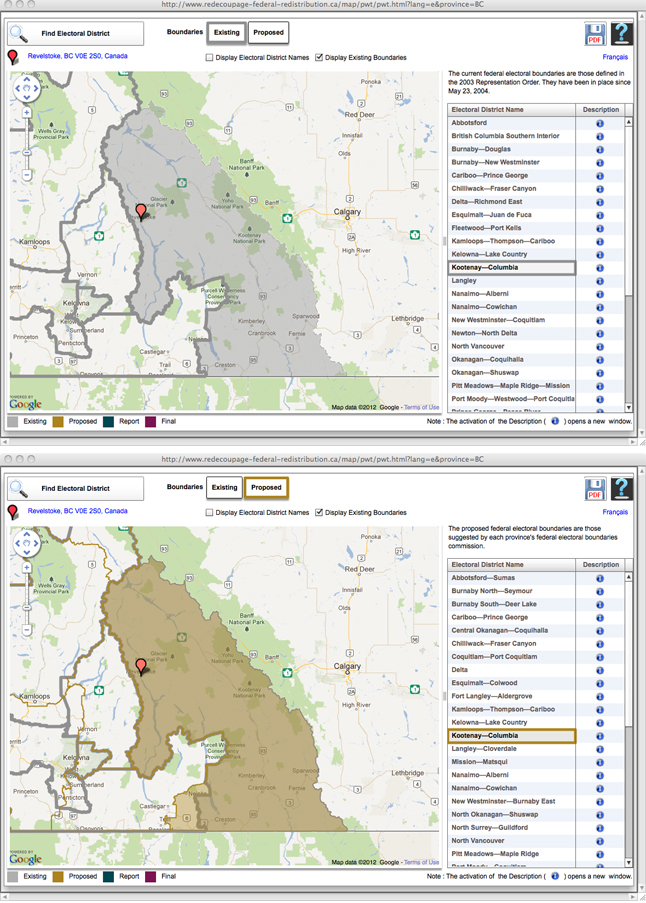By David F. Rooney
Our riding, Kootenay Columbia, could well be expanded as part of a process that will see the redistribution of federal electoral districts across Canada.
Oh, Revelstoke will remain within the boundaries of Kootenay Columbia riding. But it could well be joined by Nelson, Salmo, Montrose and Fruitvale, says MP David Wilks.
Personally, he just as soon see Kaslo, New Denver, Silverton and Slocan added to the riding.
“I’d be happy to give back Montrose and Fruitvale,” said Wilks who already faces a lot of driving when he travels the riding of 109,058 people.
Montrose and Fruitvale are both in the extreme south closer to Trail than Nelson, Kaslo, New Denver, Silverton and Slocan.
Besides being forced to travel even more, Wilks said the inclusion of Nelson and its nearby communities could have a political effect. More people vote for the New Democratic Party and the Green Party there than for his Conservative Party so he could face diminished margins of victory in future elections.
Every 10 years, after the census is conducted, the number of electoral districts and their boundaries are revised to reflect population shifts and growth.
Former MP Jim Abbott saw two redistributions during his 18 years in office from 1993 until 2011 and says the process attempts to ensure that all ridings are roughly the same size — about 100,000 people and generally consist of geographically relevant and contiguous locations. Still, he said in an interview “you sometimes wind up with idiosyncrasies.”
Including Montrose and Fruitvale in Kootenay Columbia would definitely be an idiosyncrasy because “they’re much part of the Trail complex” or towns and cities, he said in an interview Monday afternoon.
“You have to have a degree of flexibility,” he said. “It’s sometimes a tough call but it all comes down to geography.”
The other consideration is ensuring that no party or cabal of political leaders can gerrymander the political system to suit their own purposes. Including Nelson, Slocan, New Denver, Salmo and Silverton certainly won’t benefit David Wilks or the Conservative Party and Abbott said he takes his hat off to the new MP for being willing to accept the political challenge of including the NDP-orineted communities in the generally Conservative riding of Kootenay Columbia.
While this has not been a hot topic in the news media it may be of some concern to voters.
Ten electoral boundaries commissions have been established. They operate independently in each province to propose new boundaries, consult with Canadians and create the new electoral map for their province. Commissions are not required for Yukon, the Northwest Territories and Nunavut since each territory is a single electoral district.
Riding residents who wish to comment on this plan can do so in person when the Federal Electoral Boundaries Commission for British Columbia, which is overseeing redistribution in this province, meets in Cranbrook at the Heritage Inn Hotel & Convention Centre on October 1 and in Kelowna Kelowna at the Ramada Hotel & Conference Centre on October 2.
The BC Commission is led by BC Court of Appeal Justice John Hall and includes educator and consultant Stewart Ladyman and Dr. Peter Meekison, a university professor and former cmmissioner on the Royal Commission on Aboriginal Peoples.
Please click here to find out more.




